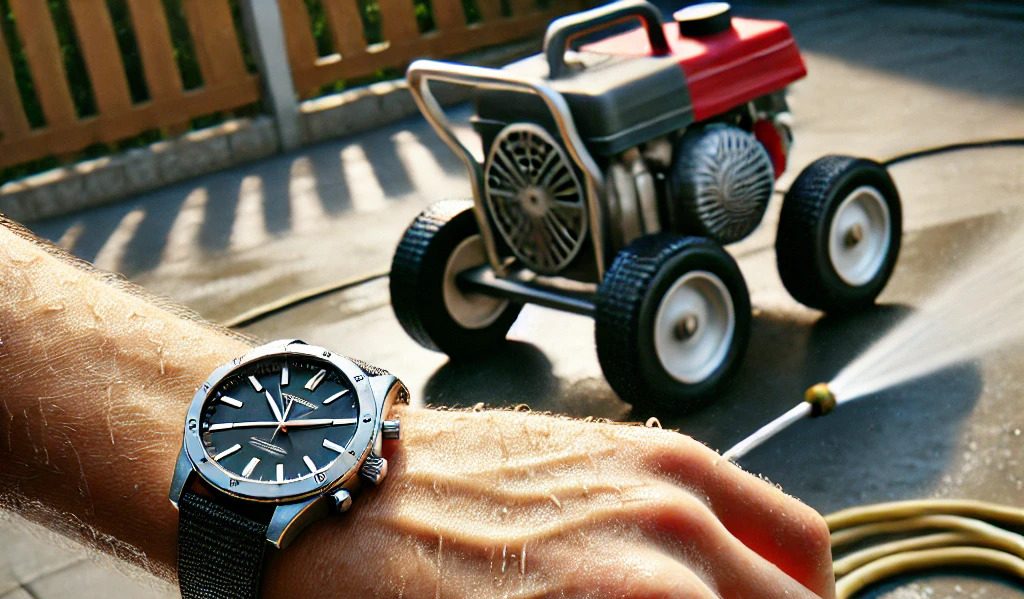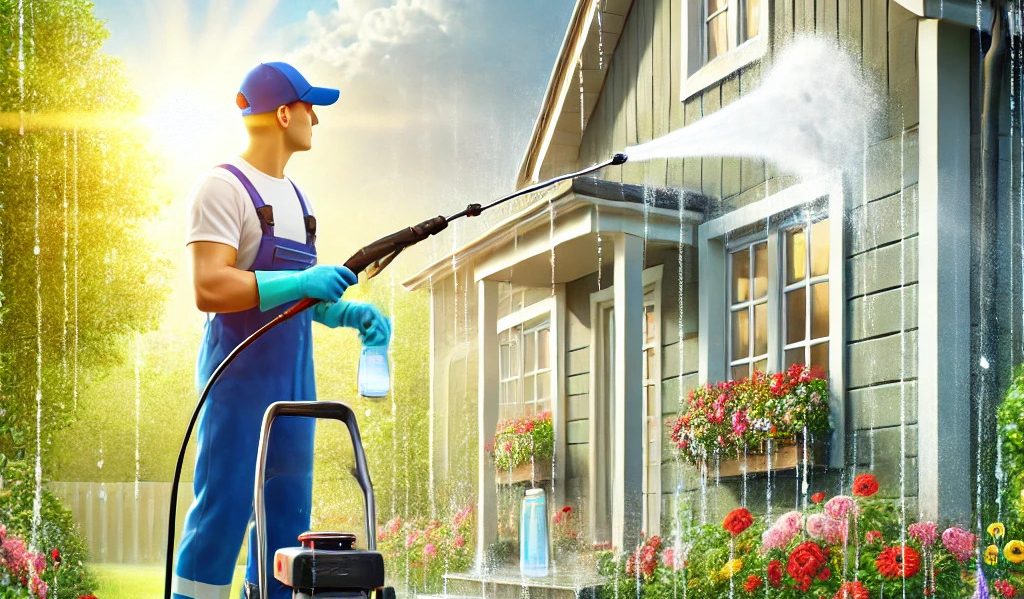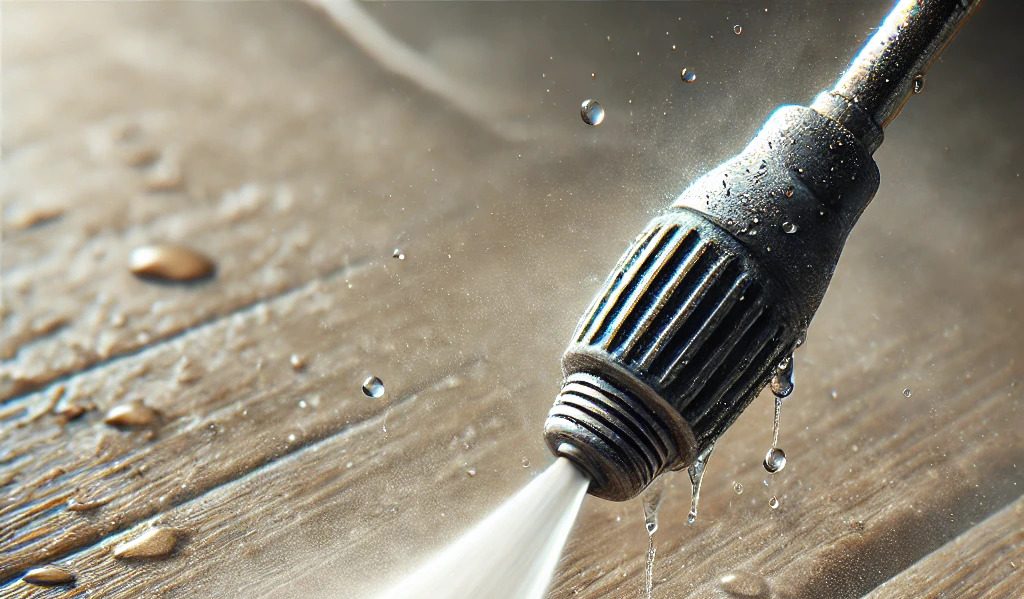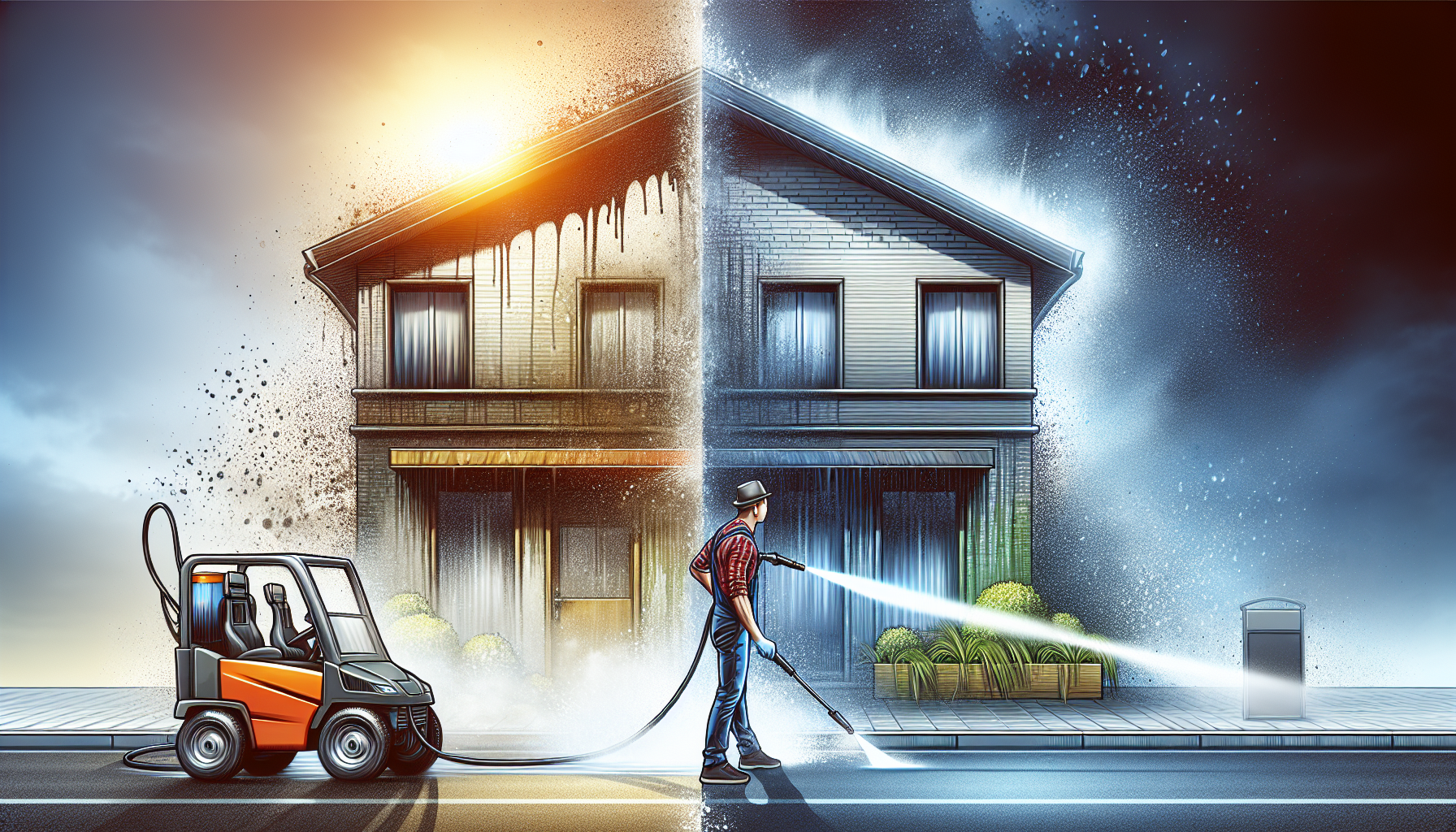Have you ever looked at your driveway or siding and thought, “Wow, that looks worse than I remember”? It’s amazing how quickly dirt, grime, and even mold can build up. That’s where power washing comes to the rescue! But here’s the thing: timing matters more than you might think. Power washing at the wrong time of year can leave you frustrated with poor results or even cause damage to your property.
In this post, we’re going to talk about why timing is everything when it comes to power washing success. You’ll learn the best times to tackle outdoor cleaning, how weather and seasons affect the process, and how to avoid costly mistakes. By the end, you’ll know exactly when to schedule your next power washing session to get the best bang for your buck—and the cleanest results. Let’s dive in!
Why Timing Matters in Power Washing

When it comes to power washing, timing isn’t just about finding a free weekend—it’s about making sure the conditions are just right to get the best results. Whether you’re cleaning your driveway, siding, or deck, the time of year and even the time of day can make a big difference in how effective your efforts are.
Let’s break it down. Power washing relies on water, pressure, and sometimes cleaning solutions to blast away dirt, mold, and grime. But these factors interact differently depending on the weather, temperature, and the surface you’re cleaning. For example, cold weather can cause water to freeze, which isn’t just bad for your equipment—it can also damage the surface you’re trying to clean. On the other hand, extreme heat can dry surfaces too quickly, leaving behind streaks or uneven cleaning.
Another factor to think about is the buildup of dirt and debris throughout the year. After a long winter, surfaces like decks and patios are often covered in grime and mildew. This makes spring an ideal time for power washing because you can clear away all that mess and start fresh for the warmer months. Similarly, tackling your gutters and walkways in the fall can help prevent issues like clogged drains or slippery surfaces as temperatures drop.
So why does timing matter? Because power washing at the wrong time can lead to:
- Poor Results: You might not remove all the grime, or it could come back sooner than expected.
- Damage: Washing in freezing or scorching conditions can harm your property.
- Wasted Effort: You don’t want to go through the trouble of power washing only to have leaves or pollen undo all your hard work.
By understanding how timing impacts power washing, you can make smarter decisions about when to schedule your cleaning sessions. And trust us, your home (and your weekends) will thank you!
Seasonal Breakdown: The Best Times for Power Washing

When it comes to power washing, every season has its pros and cons. Choosing the right time of year isn’t just about convenience—it’s about getting the best results while avoiding unnecessary hassle. Let’s take a closer look at how each season stacks up for power washing your home.
Spring Cleaning: The Perfect Time to Start Fresh
Ah, spring—the season of renewal. After months of winter weather, your home’s exterior is probably looking a little worse for wear. Dirt, salt, and grime can build up on your siding, driveway, and deck, leaving everything looking dull and dingy. Spring is an ideal time to power wash because the weather is mild and you’re setting the stage for a fresh, clean start.
Why spring works best:
- Removes winter residue like salt and dirt.
- Prepares your outdoor spaces for summer activities.
- Perfect temperature range for cleaning solutions to work effectively.
Quick Tip: Wait until the last frost has passed before scheduling your power washing. This ensures there’s no chance of freezing water causing damage.
Summer Washing: Maintenance Under the Sun
Summer might seem like the perfect time to power wash—long days, plenty of sunshine, and outdoor living in full swing. And for the most part, it’s a great choice! The warm weather helps surfaces dry faster, and cleaning up your patio or deck makes outdoor gatherings more enjoyable.
Why summer can be great:
- Ideal for sprucing up outdoor spaces before parties or BBQs.
- Dry weather means less chance of rain interfering with your plans.
- Perfect for washing off pollen that accumulated in spring.
What to watch out for: Avoid power washing during the hottest part of the day. The intense sun can cause water to evaporate too quickly, leaving streaks or uneven results. Instead, aim for early mornings or evenings when it’s cooler.
Fall: Prepping Your Property for Winter
Fall is often overlooked when it comes to power washing, but it’s actually a fantastic time to clean up your property. With cooler temperatures and less humidity, it’s easier to get great results. Plus, clearing away derbis like leaves, mold, and algae now can save you from dealing with slippery surfaces or clogged gutters in the winter.
Why fall is underrated:
- Perfect for clearing leaves and debris from driveways and walkways.
- Prepares gutters and siding for winter weather.
- Cooler weather reduces the risk of streaking.
Quick Tip: Schedule your power washing before temperatures drop below freezing. This ensures water doesn’t freeze on surfaces, which can cause cracks or damage.
Winter: Not Ideal, But Sometimes Necessary
Let’s be real—winter isn’t the best time to power wash. Freezing temperatures can damage your equipment, surfaces, and even you if you’re not careful. But there are exceptions. If you live in a mild climate or you’re dealing with an emergency spill or stain, winter power washing might be unavoidable.
What to consider in winter:
- Stick to mild days if you must power wash.
- Avoid using high-pressure settings on delicate surfaces.
- Be cautious of slippery runoff that could freeze.
By understanding the unique challenges and benefits of each season, you can choose the best time for your power washing projects. Whether it’s spring cleaning, summer maintenance, or fall prep, timing really does make all the difference!
How Chicago’s Climate Impacts Power Washing Timing

When you live in Chicago, timing your power washing projects isn’t just about the seasons—it’s about braving the city’s famously unpredictable weather. From freezing winters to hot and humid summers, Chicago’s climate presents unique challenges that can impact when and how you should tackle outdoor cleaning. Let’s break it down so you can pick the perfect time to refresh your property.
Spring: The Start of Cleaning Season in Chicago
After a long Chicago winter, your home’s exterior is likely covered in a mix of salt, grime, and leftover snow residue. Spring is the ideal time to power wash your siding, driveway, and patio to clear away the mess and get your home ready for summer.
Why spring works in Chicago:
- Warmer temperatures in late March through May make it safe for power washing.
- It’s the perfect time to remove winter buildup and prevent mold or mildew from forming.
- Prepares outdoor spaces for warm-weather activities.
What to keep in mind: Chicago springs can be wet, so watch the forecast and plan for a dry day to ensure your surfaces have time to dry properly after washing.
Summer: Warm Days with a Few Challenges
Chicago summers bring plenty of opportunities to power wash, but they also come with some challenges, like high humidity and scorching heat. When planned carefully, summer can be a great time for cleaning up your home’s exterior and prepping outdoor spaces for gatherings.
Why summer works in Chicago:
- Longer days give you more time to clean and let surfaces dry.
- Ideal for tackling pollen buildup and dirt from spring rains.
- Great for refreshing decks and patios before summer BBQs.
What to watch out for: Avoid power washing during the hottest part of the day, especially in July and August when Chicago’s heat and humidity can make the process less effective. Early mornings or evenings are your best bet.
Fall: The Underrated Power Washing Season
Chicago’s fall weather is a hidden gem for power washing. The cooler temperatures and reduced humidity create the perfect conditions for outdoor cleaning. Plus, fall power washing helps prepare your home for the harsh winter ahead.
Why fall is a great time in Chicago:
- Perfect for clearing leaves, dirt, and debris from gutters, walkways, and driveways.
- Cooler weather prevents streaking or water from drying too quickly.
- Prepares surfaces for winter, reducing the risk of ice damage.
Pro Tip: Aim to power wash before the first frost, typically in late October or early November, to avoid freezing water on your surfaces.
Winter: A No-Go for Chicago’s Harsh Weather
Let’s be honest—winter in Chicago is not the time for power washing. With freezing temperatures, snow, and ice, any attempts at cleaning are likely to do more harm than good. Not to mention, water freezing on your surfaces or equipment can lead to serious damage.
What to do instead:
- Focus on planning ahead for your spring cleaning.
- If an emergency spill or stain needs attention, wait for an unseasonably mild day—but proceed with caution.
By understanding how Chicago’s seasons and climate influence power washing, you can plan your projects for maximum effectiveness. Whether you’re tackling winter residue in spring, summer pollen, or fall leaves, timing your power washing in Chicago ensures your property stays clean and protected year-round
The Risks of Poor Timing

- Poor Results That Waste Your Effort
Power washing in less-than-ideal conditions, like extreme heat, freezing cold, or rainy weather, can mean all your hard work goes to waste. For example:
- Too hot? Water and cleaning solutions dry too quickly, leaving streaks and uneven cleaning.
- Too cold? The water might freeze on surfaces, making it nearly impossible to achieve a thorough clean.
- Rainy days? Dirt and debris can reappear before you’ve even put the hose away.
Why it matters: Pressure washing isn’t just about blasting away dirt—it’s about doing it effectively. When the timing is wrong, you’ll likely need to redo the job sooner than expected, which means more effort and more cost.
- Damage to Surfaces
The wrong timing can turn a simple cleaning job into a costly mistake. Here’s how:
- Wooden Decks and Fences: Power washing during freezing weather can cause water to seep into the wood and freeze, leading to cracks and long-term damage.
- Painted Surfaces: Hot weather can cause paint to bubble or peel when exposed to high-pressure washing.
- Concrete Driveways and Walkways: Washing concrete in freezing temperatures can lead to water getting into tiny cracks, freezing, and expanding, which worsens damage over time.
Pro Tip: Always check the weather before scheduling a power washing session and choose a time when temperatures are mild and steady.
- Safety Hazards
Power washing in poor conditions doesn’t just put your property at risk—it can be dangerous for you, too.
- Freezing Conditions: Ice can form on surfaces you’ve just washed, creating slippery and unsafe areas.
- Heat Risks: Working in the blazing sun for long periods can lead to dehydration or heat exhaustion.
- Windy Days: Strong winds can blow water, debris, or cleaning solutions back at you, causing irritation or even injury.
What to do instead: Pick a calm, dry day to avoid unnecessary risks while power washing.
- Wasted Water and Resources
Timing your power washing poorly can mean using more water, electricity, and cleaning products than necessary. For instance:
- Cleaning during humid or rainy weather might require multiple passes to achieve the desired result.
- Washing in extreme heat often means using extra water to keep surfaces cool.
The fix: Choosing the right time helps you get the job done efficiently and reduces waste—good for both your wallet and the environment.
- Shortened Lifespan of Surfaces
Power washing is a great way to maintain your property, but when done at the wrong time, it can actually cause more harm than good. For example:
- Repeated freeze-thaw cycles caused by washing in late fall or winter can deteriorate concrete and brick.
- Washing too frequently, especially on delicate surfaces, can strip protective coatings or wear down materials prematurely.
Pro Tip: Stick to a seasonal power washing schedule to clean effectively without overdoing it.
Timing might seem like a small detail, but it’s the key to successful power washing. By avoiding the risks of poor timing, you’ll protect your property, save time, and get results that last. With a little planning, you can make power washing work for you—not against you!
Also Read: The Key Differences Between Soft and Power Washing
Professional vs. DIY: Timing Considerations

When it comes to power washing, one big decision is whether to do it yourself or call in the pros. Both options can get the job done, but the timing considerations are slightly different. Whether you’re rolling up your sleeves or hiring a professional, here’s what you need to know to make the most of your power washing efforts.
- Why Professionals Have the Timing Advantage
Let’s face it—professional power washing services come with some serious perks when it comes to timing. Experts know how to navigate Chicago’s unpredictable weather and understand the best times for different surfaces and materials. Here’s how they make it work:
- Weather Monitoring: Professionals schedule jobs based on precise forecasts, ensuring the right conditions for cleaning.
- Seasonal Expertise: They know the ideal timing for Chicago’s seasons, from post-winter grime removal to pre-winter prep.
- Efficient Scheduling: With the right equipment and crew, they can clean your property quickly, even if you’re working with a tight timeline.
Pro Tip: If your schedule is packed or you’re unsure about the best time to power wash, leave it to the experts—they’ll take the guesswork out of the process.
- DIY: When You’re in Control of the Clock
For hands-on homeowners, DIY power washing can be a rewarding project. But when you’re managing the timing yourself, there are a few extra things to consider:
- Planning Around Weather: You’ll need to keep a close eye on forecasts to avoid rain, wind, or extreme temperatures.
- Seasonal Prep: If you’re tackling a spring clean, wait until after the last frost. For fall, aim for a dry day before freezing weather arrives.
- Equipment Challenges: Renting or buying power washing equipment means scheduling your project during the rental period or when your tools are ready to go.
What to watch for: Without professional expertise, it’s easy to misjudge the timing or conditions, leading to less-than-perfect results or even accidental damage.
- The Pros Know the Perfect Day
One of the biggest advantages of professional power washing service is their ability to adjust to weather and conditions on the fly. If a sudden storm rolls in or temperatures drop, they’ll reschedule to a better day without you having to lift a finger.
Key benefits:
- Professionals have the flexibility to work around Chicago’s unpredictable weather.
- They use industrial-grade equipment that works more efficiently, even in less-than-ideal conditions.
- Their expertise ensures surfaces are cleaned safely and effectively, regardless of the season.
- DIY Gives You Flexibility
While professionals offer convenience, DIY power washing lets you clean on your own schedule. Want to tackle your driveway on a sunny Saturday or freshen up your patio after a summer BBQ? With DIY, you’re in full control.
How to make it work:
- Use early mornings or late afternoons during summer to avoid the heat.
- Pick a dry, mild day in spring or fall for optimal conditions.
- Break the job into smaller sections if you’re short on time.
- Timing for Emergencies
Sometimes, power washing can’t wait. Maybe an oil spill on your driveway needs immediate attention, or your deck got covered in sticky tree sap. In these cases, professional services often have the edge, as they can respond quickly and bring the right tools for urgent cleanups.
So, Which Should You Choose?
If you have the time, equipment, and know-how, DIY power washing can be a satisfying weekend project. But for those who want hassle-free scheduling, guaranteed results, and the expertise to navigate Chicago’s climate, a professional service is the way to go.
No matter which route you take, the key is to plan your timing carefully. Whether you’re scrubbing away winter grime in the spring or preparing your property for the cold months ahead, the right timing will ensure your power washing efforts pay off!
Timing Is Everything for Power Washing Success
Power washing is one of the easiest and most effective ways to keep your home looking its best, but as we’ve explored, timing makes all the difference. From spring’s post-winter cleanup to fall’s pre-winter prep, understanding when to schedule your power washing can save you time, money, and frustration. In Chicago, where the seasons can be unpredictable, planning ahead is key to protecting your property and getting the best results.
Whether you’re tackling the job yourself or hiring a professional, choosing the right time ensures your surfaces are cleaned effectively without risking damage or wasting resources. By keeping an eye on weather conditions, using seasonal tips, and factoring in your unique needs, you’ll be well on your way to power washing like a pro.
Ready to give your home a fresh start? Don’t wait for grime and dirt to take over. If you’re in the Chicago area, consider reaching out to a local power washing expert to help you plan the perfect cleaning session. Or, if you’re a DIY enthusiast, use the tips in this guide to make your next project a success.
For more advice on keeping your home in top shape, check out our other blog posts, or contact us today to learn how we can help! Clean surfaces, a polished property, and peace of mind are just a wash away.

